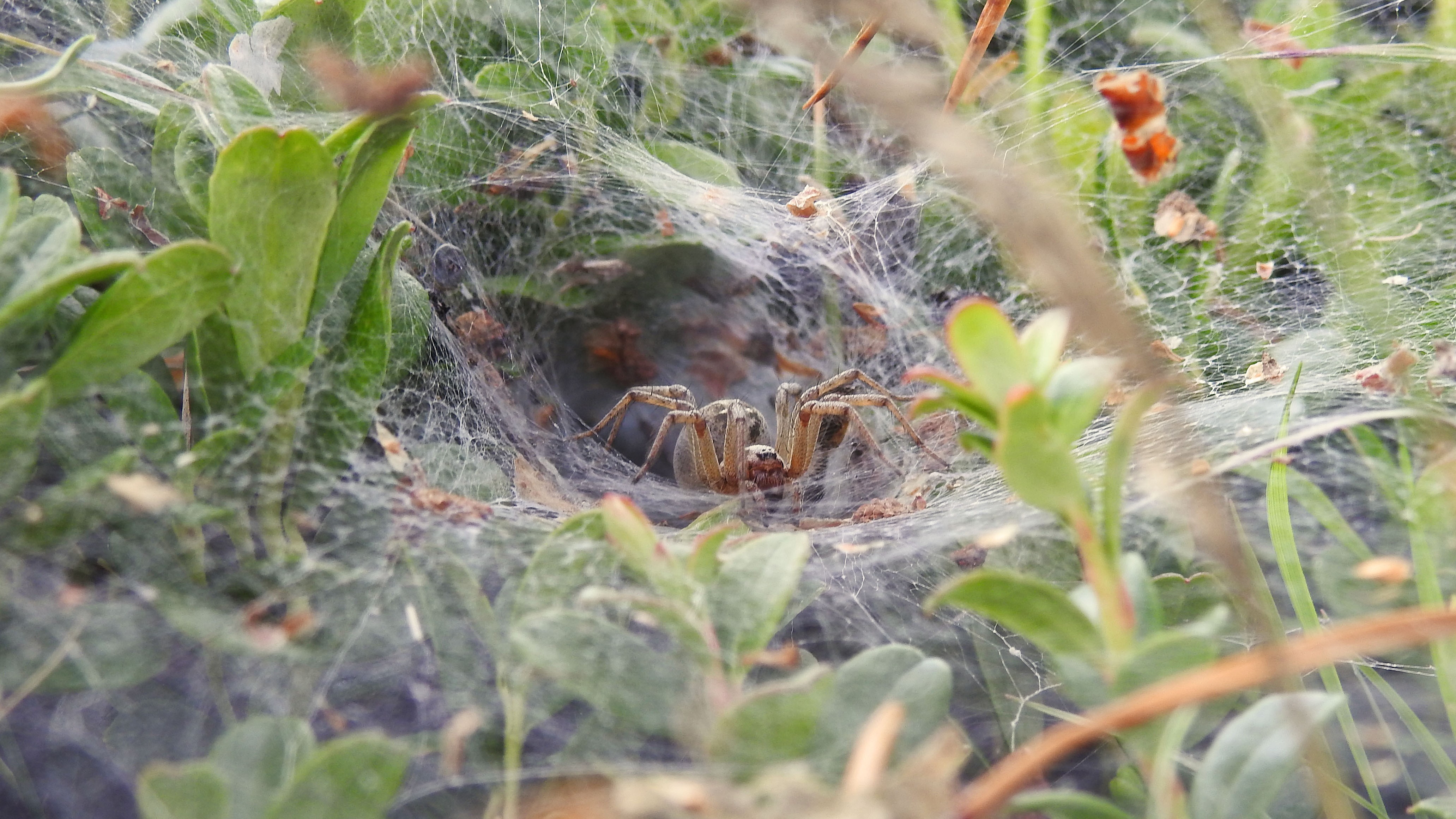
Young cannibalistic spiders give off social signals that stop siblings from eating each other alive, a new study finds. But the corpses of fallen brothers and sisters are fair game.
Labyrinth spiders (Agelena labyrinthica) live across Europe and spend most of their lives alone, dining on small insects and, if the opportunity arises, other labyrinth spiders. However, despite their cannibalistic tendencies, labyrinth spiderlings are content to share a web with their siblings at a young age.
In a new study, published in the April volume of the journal Animal Behaviour, researchers put spider sibling tolerance to the test by depriving lab-reared labyrinth spiderlings of food. The researchers wanted to see whether the hungry spiderlings would turn on each other, but, to the researchers’ surprise, the spiderlings remained civil.
“Spiders, even when starving, can be highly tolerant of their living siblings, with strong signals that prevent cannibalism,” study authors Antoine Lempereur, a doctoral student, and Raphaël Jeanson, a senior researcher, both at the University of Toulouse in France and the French National Centre for Scientific Research (CNRS), told Live Science in an email.
However, these signals only appear to be active while the spiders are alive, because the spiderlings happily fed on their brothers and sisters once they were dead, according to the study.
Related: Watch enormous deep-sea spiders crawl around sub-Antarctic seafloor
Labyrinth spiders live in webs with intricate tunnel systems, or labyrinths. Females lay and hatch their eggs — up to 130 of them — in the central chamber of these webs during the summer. The resulting hatchlings remain in the web with their mother over winter, before emerging in spring, according to the Southwick Country Park Nature Reserve in England, which is home to labyrinth spiders.
The spiderlings initially live off egg yolk from the eggs they’re born in, which is kept in their abdomens, and will eat their mother if she dies. However, they can also catch flies within days of hatching, so they’re capable of hunting at a young age.
To learn more about why siblings aren’t hostile to one another, Lempereur and Jeanson collected labyrinth spider egg sacs in southwest France and hatched them in a lab. Some of the spiders were kept in groups of four, while others were kept alone. None of the spiders were fed during the experiment, and after 20 days, the researchers started putting two hungry spiders into small plastic “arenas” to see how they would interact, according to the study.
The spiderlings raised in groups were significantly less aggressive to one another than the spiders raised alone, something Jeanson has already demonstrated in previous studies. The researchers suggested this is because social isolation reduces sensitivity to social signals.
“In short, a spider living alone has no reason to respond to cues emitted by other spiders, as it will never encounter them again, except during reproduction when other signals, such as sexual pheromones, come into play,” Lempereur and Jeanson said.
While the group-reared spiders were typically not hostile to each other, they fed on their dead siblings just as quickly as the socially isolated spiders, which the researchers said was surprising for two reasons.
“First, spiders are typically predators of living prey rather than dead prey,” Lempereur and Jeanson said. “Second, and more importantly, as shown in our previous work, spiders can tolerate living siblings for weeks but will consume dead siblings within an hour of their death.”
Lempereur and Jeanson wrote in the study that living siblings could be sending a “life signal” to one another through chemicals, which is one of the ways spiders communicate. The researchers will now investigate the makeup of this signal.
